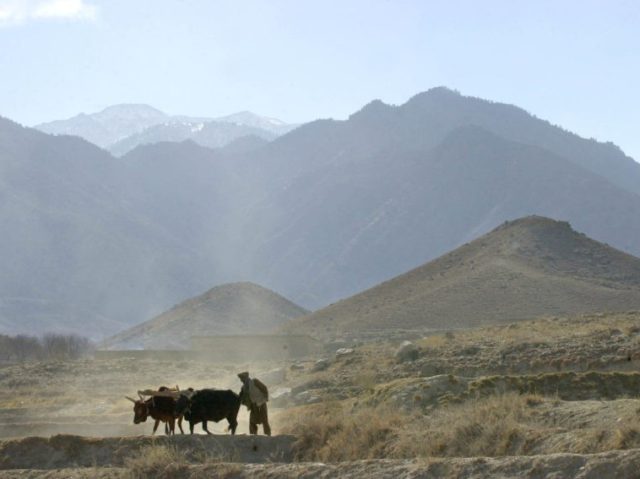WASHINGTON – President Trump has promised the U.S. would not be “nation-building” in Afghanistan, but some experts who have long studied Afghanistan said that is what his strategy would entail in a panel on Tuesday.
In his announcement of the new strategy on Monday for Afghanistan, Trump said “We are not nation-building again. We are killing terrorists.” He also said the U.S. would “continue its support for the Afghan government and the Afghan military.”
Experts say that without “nation-building” – insofar as it means things like helping Afghanistan pull off democratic elections – there will be no Afghan government or Afghan military to support.
Andrew Wilder, vice president of Asia programs at the United States Institute of Peace (USIP), pointed to the upcoming Afghan presidential elections in 2019. The last election in 2014 required heavy U.S. involvement.
“In 2019 we scheduled to have the next round of presidential elections in Afghanistan. If those aren’t held, we have a big crisis on our hands,” Wilder said.
“If we don’t end up with a legitimate election resulting in an accepted outcome, well, then, there are fundamental questions of who’s going to control the Afghan National Security Forces that we’ve put tens of billions of dollars into developing,” he said at a roundtable for reporters on Tuesday.
Without a successful election, there could be a “return to anarchy,” he said. “So that’s where we actually do need to take things like nation building — if by that you mean the fundamentals of democracy which are what are helping hold Afghanistan together now.”
Scott Worden, director of Afghanistan and Central Asia Programs at USIP, said that, on one hand, Trump wants to protect the U.S. from terrorism emanating from Afghanistan, but on the other, 30 years of non-democratic institutions in Afghanistan have led to more violence.
“Our goal is not to send our forces over to fight for building democracy,” he said. “However, stable governance and democracy may well be — and I would argue is — an essential component to achieving our end of an end to a terrorist threat.”
Belquis Ahmadi, a senior program officer as USIP, said it is now “up to the Afghans to address the needs of its people.”
Wilder agreed that the Afghan government has to make tough decisions in terms of fighting corruption, which is going to be “fundamental if we’re actually going to have success in Afghanistan” in terms of stability and a functioning Afghan state.
But, he said, they continue to need U.S. support in doing so.
“We’ve put a lot of effort into actually helping support the Afghan state and so the idea that we’re not there to build democracies and things like that I find a little bit worrying because, actually, that’s kind of what we’ve done,” Wilder said.

COMMENTS
Please let us know if you're having issues with commenting.